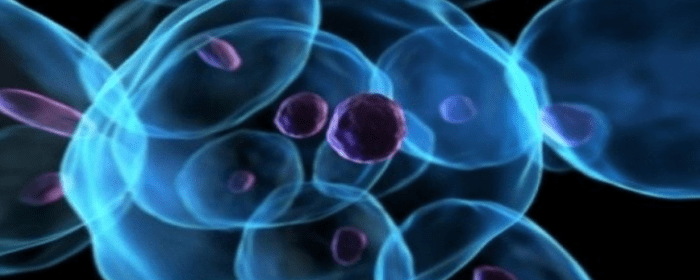Promising early research shows that when introduced into a brain injured by stroke, extracellular vesicles (EVs), also known as exosomes, a bioactive substance secreted by mesenchymal stem cells, have been associated with improved blood vessels creation, increased formation of neurons, and enhanced preservation of the neurological structure; these findings demonstrate a promising stem cell-derived stroke therapy that serves as an alternative approach to current stem cell infusion treatment options.
With nearly 14 million people suffering strokes each year, strokes continue to be the leading cause of physical disability among adults; between 25 percent and 50 percent of stroke survivors are left with significant and debilitating disabilities.
Because mesenchymal stem cells, or MSCs, secrete extracellular vesicles thought to reduce inflammation, enhance autophagy, and promote regeneration of damaged cells, researchers evaluating potential regenerative strategies for stroke-induced neurologic deficits have identified these MSC-derived EVs as a viable option for stroke therapy.
Although the reported beneficial effects of EV therapy has been observed in studies completed on animals, there is an increasing number of clinical studies currently being conducted on humans that suggest MSC EV stem cell therapy is a potentially safe and effective therapeutic option to improve outcomes in several various human applications.
Specifically, this EV-mediated therapy appears to offer an off-the-shelf treatment option that is potentially effective in crossing the blood-brain-barrier (BBB) while also avoiding cell-related problems, including the formation of tumors and infarcts resulting from vascular occlusions, or blood clots, consistent with those observed in acute ischemic stroke.
While there appears to be a promising upside to MSC EV therapy for the treatment of stroke, studies are on-going to discover the optimal therapeutic treatment of stroke patients. Some areas to continue researching are the optimal time and best mode of application of EVs in stroke patients (most stroke-related recovery occurs in the first few months following the stroke).
As research continues into the effectiveness of MSC-EV therapy for stroke, early indications are that EVs derived from mesenchymal stem cells could be a viable cell-free treatment option for patients recovering from a severe stroke.
Source: (2019, March 12). Mesenchymal Stem Cell-Derived Extracellular Vesicle …. Retrieved December 4, 2020, from https://www.ncbi.nlm.nih.gov/pmc/articles/PMC6422999/


 St. Petersburg, Florida
St. Petersburg, Florida
